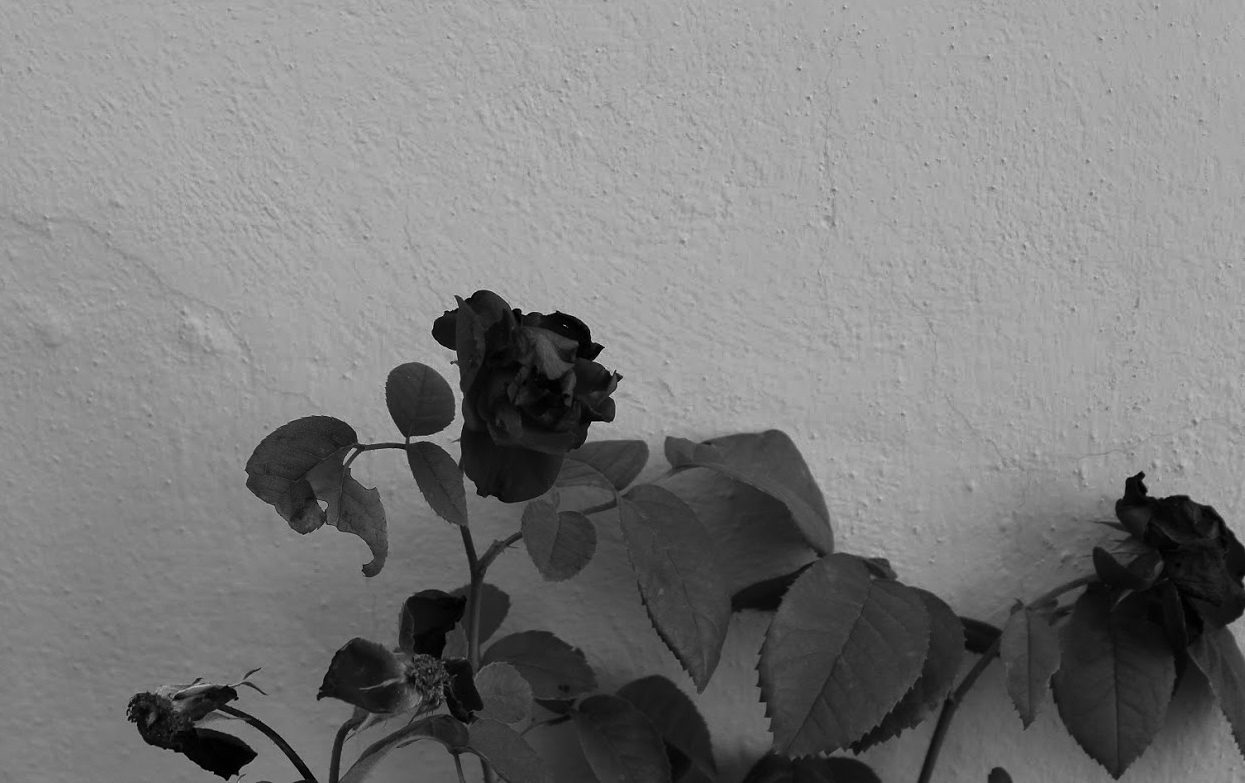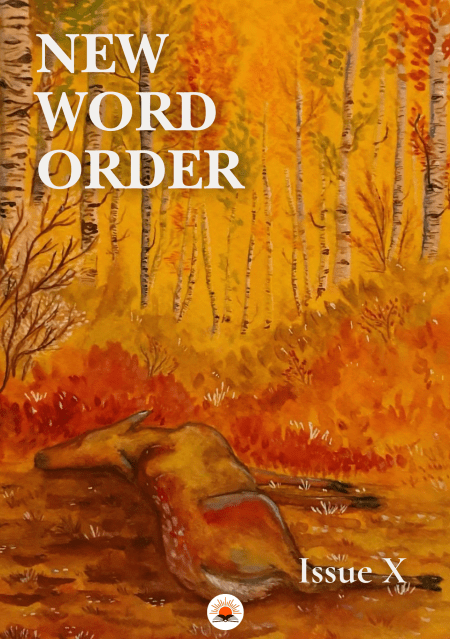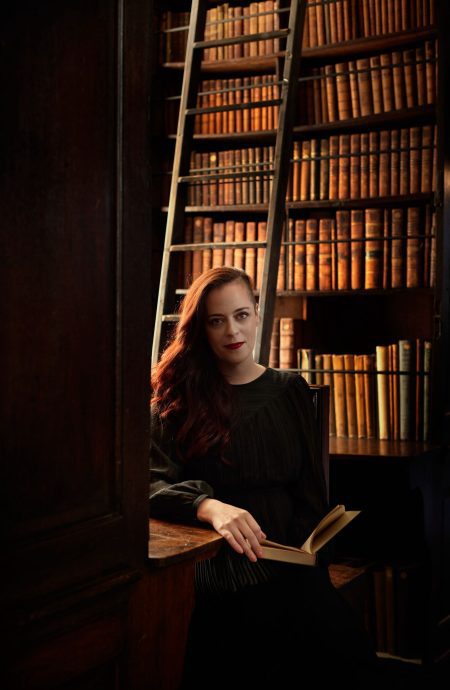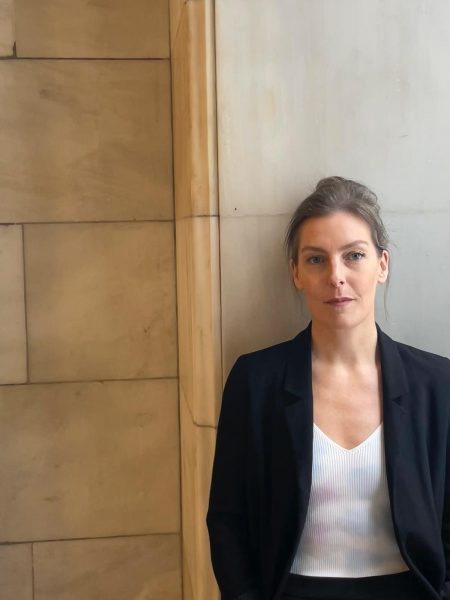By Tara Murphy
Photo “Wistful” By Aurora Santoro
I remember a surprisingly large amount from that night considering I had only been five for a week. My brother Oisín and I were awfully close growing up – there are only 20 months between us. We had come back from the hospital and were in Nana’s kitchen. The oak dresser was as smooth as ever, my favourite cup embezzled with dinky roses hanging from a shiny hook near the top. I ran my fingertips over the silky surface whilst I stared at the screen of Oisín’s black DSi, the blue light twinkling as he played. The game was Nicktoon’s Unite and I was in awe at the cartoonish seedy city and how Danny Phantom was perhaps the finest man to ever exist. Mammy was dying in the hospital; she had said her goodbyes to us, and It pains me to think I don’t remember. Just a white bed and a machine that loudly beeped. I can’t even begin to imagine how awful that experience must have been for her or my father having to tell us the following day, but I can recount the details.
The sunroom was dazzling – sun lazily shining in through the great glass windows. They had been naked back then, (shutters coming years later in routine trips to various stores) so the birds had borne first-hand witness to our sorrow. The faint chill of winter remained but Daddy ignored the cold, his heart already shattered as he kneeled on the hard oak floor. Floors he was proud of, one’s that you couldn’t bring a buggy on for fear they would scratch. Tears had babbled in hot rivers down his cheeks as he delivered the news. “Mammy died.” I looked at him blankly, Oisín cried. Five-year-olds don’t think logically, they are controlled by emotion. I wanted away from the scene, walking out of the room that was filled with a despair I couldn’t grasp and wouldn’t for years. I still struggle to understand it to this day. My father followed and hugged me, and I wondered why we were all suddenly sad and when Mammy was going to come home from the hospital. That was my first experience with life’s greatest loss – Death.
There’s often a misconception about trauma experienced in childhood. I think many people believe it’s processed instantly and placed into a neat box of acceptance, but kids have a secret power that adults lose: innocence. The word has two meanings. It can be a virtue and a hindrance all in one, but I like to believe that it was more of the first for me. You’d be surprised by how adaptable children are, their brains lacking the mental capacity to understand why they should act differently. No wondering about how they got into this situation just the fact that it’s the way everything is now. I have vague memories of waiting rooms with stiff chairs that my wiggling legs could never reach the ground on. And the hallways were always looming dark mazes, as narrow as a pencil and cloaked with the stench of disinfectant. A scent I’ve come to know as hospital. Sometimes the smell brings back the memories, but my feet can touch the ground now and I’m usually not bored if I have my phone. It still never fails to humour me that the most prominent emotion back then was boredom. But that’s it really, kids are extraordinarily amazing at compressing everything because it doesn’t concern them in the current moment. I’ll always be thankful for little me for doing this. The thought of my younger self, who desperately needed a mother, being upset over not having one kills me. I should have one and I don’t and that’s just how it is – That might be the healthiest thing I could ever say about this situation.
Maybe that’s why counseling was easier, my fiddling fingers kept busy by creating crafts as my therapist dutifully prodded me with questions about my mother. I read back over these notes before and found a section I have no recollection of about seeing my mother at the circus. I find it fascinating how a mystical place like a circus could fulfill a child’s every dream and maybe at the time just one night with her alive was what I needed. One clear memory I have was with Rainbows, a counseling group for kids going through tough times. I was partaking in a group session in one of the multi-functional rooms in St Peter & Paul Church in Portlaoise. The church itself was a garish building, ginormous and festering in red bricks and I felt pensive over having to enter it. I believe I must have been eight with a group of children the same age as myself sitting at a table dotted with chairs in crude nursery colours. I can’t remember any identifying features except that they were all boys and my ears hurt upon leaving at their constant antics of screeching and getting underneath the table. What strikes me the most about this situation however was the fact that I was the only one who had lost a parent. For a long time, I didn’t register what was going on, but I knew one thing. If all their parents were still alive, why was I there?
My experiences with grief in recent years have been immeasurably more difficult than when I was younger. For the longest period, I never talked about my mother. I simply couldn’t because of a choking sensation in my throat. If I talked I would cry so it was best not to think about her at all. It worked extraordinarily well until it didn’t and the bottle I had meticulously sealed popped not even shy a month of me starting sixth year. Reflecting now, it was definitely the stress of school that pushed me over the edge, but I learned a valuable lesson. The bottle needs to be open. It needs to emit its’ vicious toxins into my body for me to manage my emotions and heal. The choking sensation will always remain, but my inner self has been saved from constant strangulation.
Grief now is a journey that I am on, and it is a very bitter ride. There’s envy not just for people who still have both their parents alive but envy for those who lost them years after me. Even three years after would have made an enormous difference in the memories I would have had compared to the handful I have now. I try not to get too caught on those thoughts because comparison is disregarding both my situation and theirs. Why is it so hard to deal with though, wasn’t I only a child? I wish this were a true statement sometimes, but I think grief is the rawest form of love because it’s the love we must hold in our hearts. I wish I had more time but wishing is a frugal attempt at comfort, it dangles our dreams in translucent shards of hope. Break those shards, and get into the world. Be a part of the people around you until you find the strength to do it all alone.
Tara Murphy
Tara Murphy is a third-year English with creative writing student studying at UCD. She fell in love with books at an early age and plans to publish her own in the future. Through her writing, she aims to tackle difficult topics such as her mother’s bereavement in hopes that she makes children in the same predicament feel less alone.



